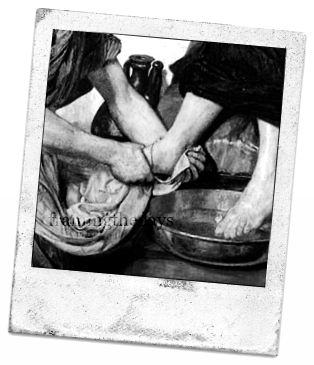What does it look like to be humble? Have you felt the lovingkindness of being humbled? Or the shame of being humiliated? Journey with me …
into the meaning and depth of these words.
I’ve never really thought about the gap between the three. Or considered that there even was one. After all, the root word is essentially the same.
But I’ve discovered, by my own experience and the thoughtful sharing of some dear friends, that there are indeed important differences.
As I’ve pondered and processed and connected with my friends about these similar words, I think maybe I’ve teased out the subtle distinction between them. And those distinctions are very important to me in how I receive the words and understand the intentions of others, and how I respond as a result.
So let’s start with humble. And humility. These two words imply a character quality, a state of being, that defines the essence of you. Webster’s defines humility this way: “Not proud or arrogant, modest. Low in rank, importance, and status.” Of course our very best example of this is Jesus, who describes himself as “humble and lowly in heart.”
Humility is an internal posture that leaves pride out of the mix, and I am the first to admit that my pride does NOT like being left out of the mix. Yet I must remember Jesus, Son of God, my Savior, washing the feet of his disciples the night before he is crucified.
If anyone had a right to importance, rank and status, it was him.
Instead he does this.
So how is “humble” different from “humbled”? While humble is an adjective, a descriptor (a humble person), humbled is a verb. As in, “being humbled.” This happens TO YOU – it comes from the outside.
You can be humbled by circumstances, by people, or by God. Asking for help, receiving unexpected blessings, being given an insight into yourself or others that you could not see that is spoken gently and with love – all of these humble me. They invite me to receive graciously, and to make changes in my actions and attitudes.
Regarding being humbled by God, Anne* wrote these words:
“When I have been humbled in the sense that I usually think of the word, it’s because I have suddenly realized who I am and who He, the I AM, is. I know it happens when I give up my own answers to be able to receive His.”
Being humbled can break down pride, but it does not break down dignity. It leads to repentance, but it does not result in shame. Rather, change will follow repentance, and gratitude will follow change.
One of my oldest friends has MS. It has progressed rather quickly, and she describes it as a humbling journey. She has had to ask for help often, and her physical condition has left her with many issues that are completely out of her control. Her “former” life was defined by giving, by “can,” and now she is more often a receiver, and must carefully decide when she can’t. The very reality of her disease has been humbling, and it has also humbled her. She has learned gratitude, and practices it every day, regardless of how she feels.
In my mind’s eye, being humbled looks like this:
Humiliation is the other side of the coin. It is shaming, and embarrassing, and wounding, and it destroys your dignity. The humiliator does not have your best interests in mind.
Anne describes humiliation this way:
“Those times when someone attempts to humiliate me, I generally feel embarrassed, angry, upset by the injustice. Is their goal to build themselves up and I just happen to be the tool they use?”
I think humiliation feels like this:
The difference between being humbled and being humiliated is the intent and delivery of the message. Even a tough message motivated by love and spoken with kindness is humbling. The same message motivated by retaliation, a desire to shame, wound or degrade, is humiliating.
Sometimes, though, God can use humiliation to ultimately humble you.
In a combination of these concepts, with the added twist of false humility, Jane* writes this:
“The façade of my perfect Christian life and family was
destroyed when a rebellious teenager publicly bragged about her exploits, and I was then contacted by a friend who said that ‘a group of us’ were talking about this and she decided to ask if I was aware.
While initially I felt humiliated, ultimately it brought me to my knees before God as he revealed the
false pride I had about my life.
Prior to this I would wave away
compliments and positive comments about my well behaved, scripture-memorizing, church-attending, outwardly perfect little family with a ‘praise God’ type of response. But in my heart, I was very proud of all ‘my’ accomplishments.
This humbling crushed my false humility. Like a hammer falling on a china
tea cup – smashed to smithereens – there was no way to do damage control or spin the
situation and I had no option but to fall on my face before God.”
Sometimes false humility looks great on the outside, but on the inside lives pride and arrogance and a wanting for others to know about the great person they are, family they have, things they do FOR God and others.
True humility doesn’t seek attention; rather, it serves quietly, gives secretly.
When have you been humbled or humiliated? Do you have a story to tell? Please leave your thoughts in the comment section below.
My prayer is this: Lord, make me humble. Humble me. Stop me when I might humiliate. Hammer the false humility out of me. Teach me to build up others with kindness, love and mercy, and to receive from you and others in humility and grace.
With love,
Angie
(*Names changed for privacy purposes.)




Be First to Comment